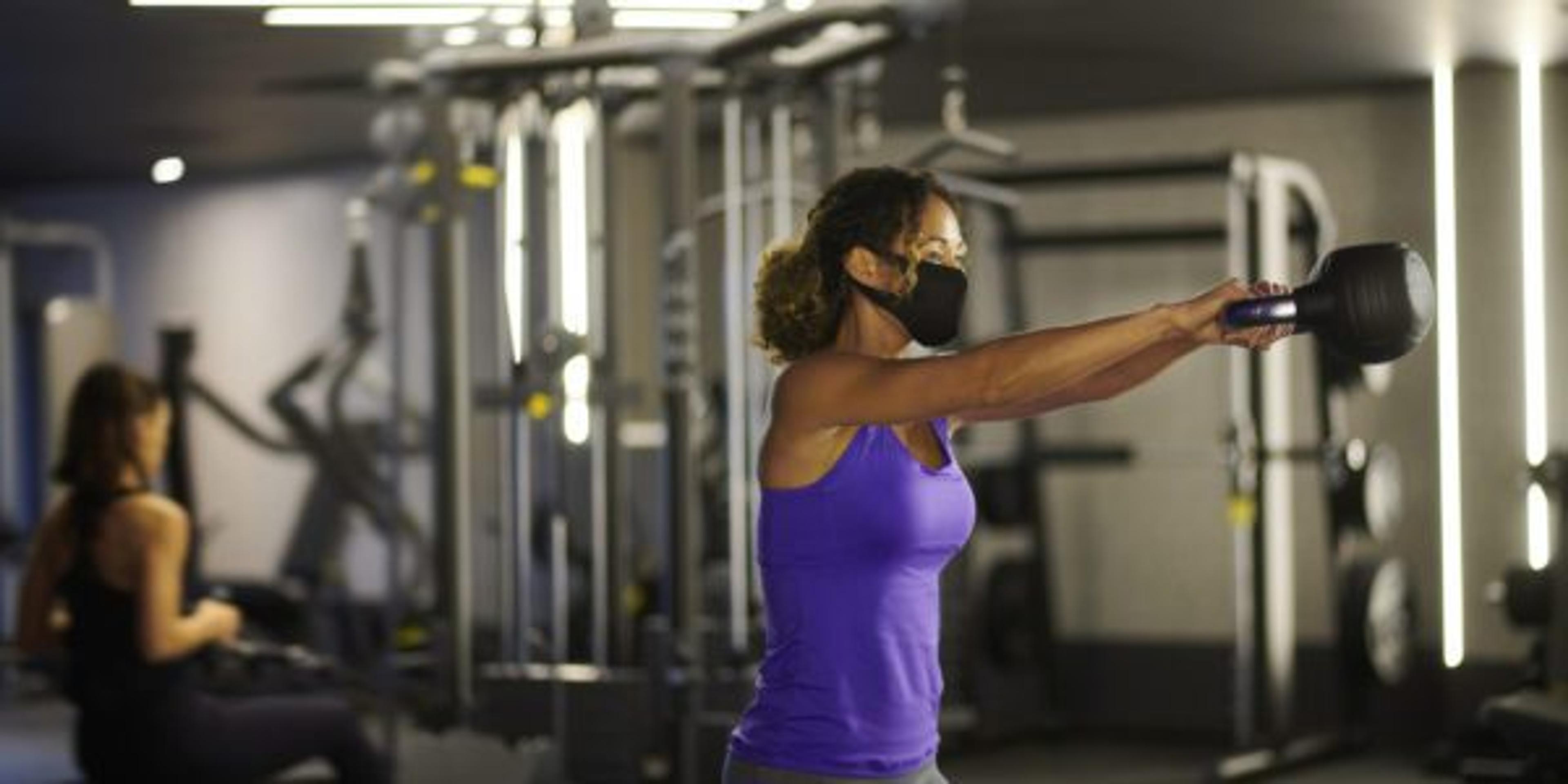Steps to take for a Safe Return to the Gym
Jake Newby
| 3 min read

Michigan gyms reopened in early 2021, but many people have been understandably hesitant about hitting the weights in public again amid the COVID-19 pandemic.
A return to the gym may be a desire for some Michiganders with freshly crafted new year’s resolutions. But statewide COVID-19 cases are rising, so if you’re returning to the gym, you should take every precaution possible to keep yourself and others safe.
Get vaccinated
The COVID-19 vaccine is the most effective way to reduce the risk of contracting COVID-19 and suffering from its potentially severe complications. For optimal protection at any fitness facility, you should wait until two weeks after your second dose of the vaccine before returning.
Remember, if you feel sick at any point this winter, even with mild cold symptoms, you should stay home until you are healthy.
Wear a breathable mask
Health officials still strongly recommended that individuals wear face masks indoors.
Over the last year and a half, industry-leading sportswear companies have developed breathable masks designed to protect you from the virus without hindering your breathing ability, which is obviously already constricted while exercising.
These masks range in price from just a few dollars all the way up to $30-40.
Work out from a distance
Keep six feet of distance between yourself and fellow gym-goers while working out, and make sure any fitness class you are in provides ample space between attendees. If an area of equipment is crowded, avoid it until it clears out.
Avoid peak hours
You can likely circumvent some of the issues listed directly above by staying away from the gym when it is at its busiest.
Peak hours at the gym are usually between 5 and 7 p.m. when most people get off work. If that is when your gym is the most crowded, try to avoid that window, if your schedule permits.
Wipe down equipment before and after usage
COVID-19 can spread through direct contact, airborne transmission or droplets.
Though contracting the virus from a surface is less of a danger than we once thought, you should be more mindful than ever to disinfect gym equipment with so many people dripping sweat all around you.
You should wipe equipment down both before and after you use it. If possible, let the disinfectant spray sit on a surface for up to a minute before you wipe it clean, for maximum effectiveness.
Limit yourself to three days a week at first
If you’ve been on hiatus from the gym for multiple months you could risk overexertion of your muscles and joints, which could lead to injury.
Beyond that, it’s inevitable that you’ll feel sore after your first few workouts in a long while. That’s why many trainers recommend taking it easy in the first two weeks of your return. Try giving yourself 48 hours off in between sessions, which equates to three days a week, as you get back into the swing of things.
Drop your usual weight amounts down by 50%
Even if you remained active while away from the gym, it could come as a shock to your body if you try lifting as much weight as you’re accustomed to when you first return.
Focus more on form and less on weight when in the early going, to avoid injury. Then, slowly ramp up your weight amounts by 10% to 15% per week. This should get you back to your pre-hiatus weight by about your fifth or sixth week back at the gym.
Read more:
Photo credit: Getty Images





